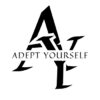🟠 1. Factual Passage
- Based on real-world facts, data, or statistics.
- Often descriptive in nature.
- Examples:
- A newspaper article on environmental issues.
- A passage about the life cycle of a butterfly.
- Report on a recent sports event.
🔍 Focus Areas:
- Skimming and scanning for facts.
- Identifying key details and supporting information.
🔵 2. Discursive Passage
- Discusses an issue, opinion, or idea with multiple perspectives.
- Requires critical thinking and interpretation.
- Examples:
- Essay on online learning vs traditional classrooms.
- Passage on importance of mental health in teenagers.
🔍 Focus Areas:
- Drawing inferences.
- Understanding author’s tone and point of view.
- Vocabulary in context.
🟢 3. Literary Passage
- Extract from a short story, novel, or poem.
- Emphasizes narrative style, characters, and theme.
- Examples:
- Passage from a classic novel or modern short story.
- Descriptive excerpt with imagery and figurative language.
🔍 Focus Areas:
- Theme and message.
- Character and plot analysis.
- Literary devices (simile, metaphor, etc.).
📘 Types of Questions in Reading Section
- Multiple Choice Questions (MCQs)
- Short Answer Questions (SAQs)
- Vocabulary-based questions (Synonyms, Antonyms, Word usage)
- Inference-based questions
✏️ Practice Topic Ideas for Passages
You can use these themes to prepare or practice:
- A Day in the Life of an Astronaut
- Plastic Pollution – A Growing Concern
- Benefits of Meditation for Teenagers
- Story of a Lost Puppy Reunited with Family
- Rise of Artificial Intelligence in Daily Life
- The Value of Time Management in School Life
- My First Train Journey – A Narrative Passage
- The History of the Olympic Games
- The Power of Reading Books
- How Bees Help the Environment
